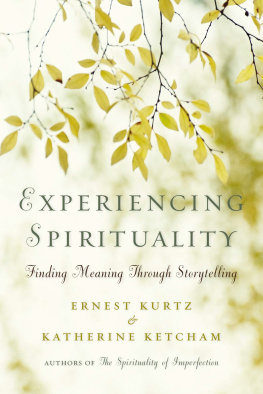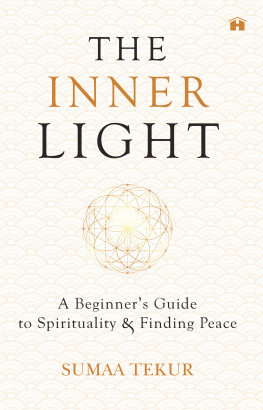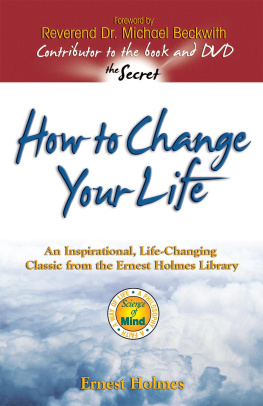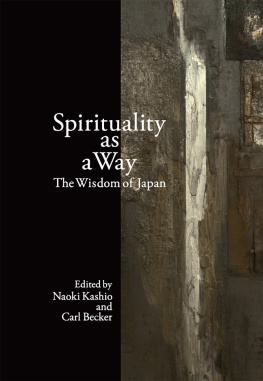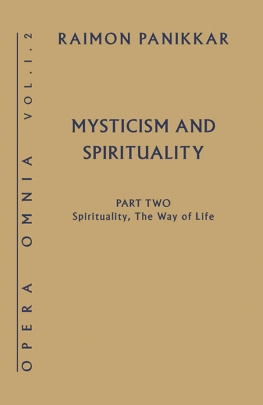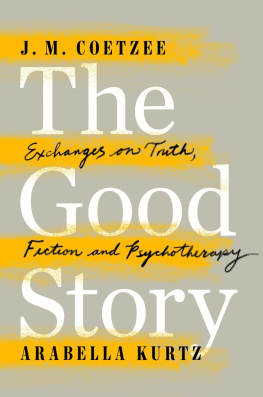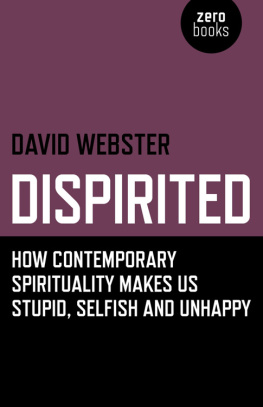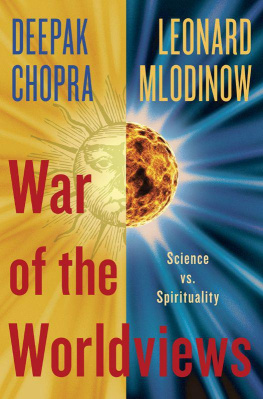
JEREMY P. TARCHER/PENGUIN
Published by the Penguin Group
Penguin Group (USA) LLC
375 Hudson Street
New York, New York 10014

USA Canada UK Ireland Australia New Zealand India South Africa China
penguin.com
A Penguin Random House Company
Copyright 2014 by Ernest Kurtz and Katherine Ketcham
Penguin supports copyright. Copyright fuels creativity, encourages diverse voices, promotes free speech, and creates a vibrant culture. Thank you for buying an authorized edition of this book and for complying with copyright laws by not reproducing, scanning, or distributing any part of it in any form without permission. You are supporting writers and allowing Penguin to continue to publish books for every reader.
Stories of Reb Yerachmiel reprinted with permission from Rabbi Rami Shapiro, author of Open Secrets: The Letters of Reb Yerachmiel ben Yisrael (Monkfish Book Publishing).
Excerpts from William J. Bausch, A World of Stories for Preachers and Teachers and Storytelling: Imagination and Faith reprinted with permission from Twenty-Third Publications, Mystic, CT.
Excerpts from Anthony de Mello, The Prayer of the Frog (vols. 1 and 2), One Minute Nonsense, and More One Minute Nonsense reprinted with permission from Gujarat Sahitya Prakash (bookgsp@gmail.com).
Excerpts from Lao Tzo, Tao Te Ching: A New English Version, by Ursula K. Le Guin. Copyright 1997 by Ursula K. Le Guin. Reprinted by arrangement with The Permissions Company, Inc., on behalf of Shambhala Publications Inc., Boston, MA, www.shambhala.com.
How Wisdom Comes by Leila Fisher from the book Wisdomkeepers by Steve Wall and Harvey Arden. Copyright 1990, reprinted with permission from Beyond Words Publishing, Hillsboro, OR.
Most Tarcher/Penguin books are available at special quantity discounts for bulk purchase for sales promotions, premiums, fund-raising, and educational needs. Special books or book excerpts also can be created to fit specific needs. For details, write: Special.Markets@us.penguingroup.com.
Library of Congress Cataloging-in-Publication Data
Kurtz, Ernest.
Experiencing spirituality : finding meaning through storytelling / Ernest Kurtz and Katherine Ketcham.
p. cm.
Includes bibliographical references and index.
ISBN 978-0-399-16417-0
1. StorytellingReligious aspects. 2. Spirituality. I. Title.
BL628.7.K87 2014 2013050986
204dc23
Version_1
DEDICATION
Gratefully, we dedicate this book to and acknowledge the contributions of all who have taught us over the years: formal teachers and professors, diverse writers, good friends, many in the roomsall those whose quiet example of dedication to truth helped us to experience spirituality.
ACKNOWLEDGMENTS
A special acknowledgment to Linda Loewenthal, our literary agent; Sara Carder, our editor, and Joanna Ng, her assistant; and especially to our long-suffering but tolerant spouses, Linda Kurtz and Patrick Spencer.
We also wish to note here our debt to Anthony de Mello, Jesuit priest, gifted storyteller, and profound spiritual guide. A great collector as well as teller of stories, Father de Mello died suddenly on June 1, 1987, and we appreciate the help of his brother, Bill deMello, whose biographyAnthony deMello: The Happy Wandereris an enriching read. Bill also aided our project by connecting us with Father Jerry Sequeira, S.J., provincial of the Jesuit province of Gujarat and director of Gujarat Sahitya Prakash, the first publisher of Tonys books, who helped us put Tonys storytelling work in context.
Contents
Introduction
W hat are you doing for an encore? So ran an occasional conversation starter from friends after the 1992 publication of our book The Spirituality of Imperfection.
Back to reading and thinking, came our usual answer.
But then something new arrived in our lives! Even as the Internet was dawning, at the very beginning of e-mail, individuals began to contact us offering more or slightly different stories (some of which appear in this book). What a gift! Eventually, as we read and listened to those gifts, this book began to take shape. But only barely and very slowly, for our other reading, thinking, and life adventures combined with the stories, old and new, to lead us down diverse pathways pondering what we were experiencing.
In our non-writing lives, meanwhile, Kathy was raising three children into and through the adventurous teen years, and Ernie confronted a cascade of body-part-replacement and other surgical events that led to his retirement from mainline academia. In contact through those years, despite the some 2,200 miles that separate us, we continued to exchange discoveries and insights. Slowly the themes that make up this book emerged, hammered out on the hard anvil of our life experience at least as much as in the soft tissue of our brains.
Once upon a time we had dared to write a book on spirituality, but now, two decades later, had we learned any more from our own experience trying to live that spirituality?
We hope so. We think so.
The governor resigned his exalted office and came to the Master demanding to be taught.
What is it you wish me to teach you? asked the Master.
Wisdom, was the reply.
Ah, my friend! How gladly would I do that were it not for one major obstacle.
What?
Wisdom cannot be taught.
So theres nothing I can learn here.
Wisdom can be learned. But it cannot be taught.

AND SO THE FIRST TRUTH with which we had to become comfortable was that anything we wrote would do no good. At least not directly. Once again we turned to experienceboth our own ongoing experiences over the intervening twenty years and the experiences captured and encapsulated in the traditions we had mined for the stories that conveyed the themes of a spirituality of imperfection. Because it is impossible directly to transmit or convey experiencefor experience itself attests that it must be experiencedwe again turn to stories: Experience is best awakened within story. Many of these stories and themes are light, even humorous, but some are dark, perhaps uncomfortable. Both experiences, after all, fall within the experience of most of us.
As we reviewed those themes and the comments we had received, one question repeatedly struck us: Why is it that the most profound truths seem to be simplistic, even clichs? Probably, the stories seemed to say, because through much experience those who came before us discovered many of the most important truths about be-ing humanly... and having learned them, they did try to pass them on. As many wisdom thinkers had observed: The good seeks to diffuse itself. But as their own experience taught, all they had to offer was... their own experience.
When seekers searched out those whose lives revealed a certain somethinga quality variously named spirituality, sanctity, bliss, serenityand earnestly asked,

